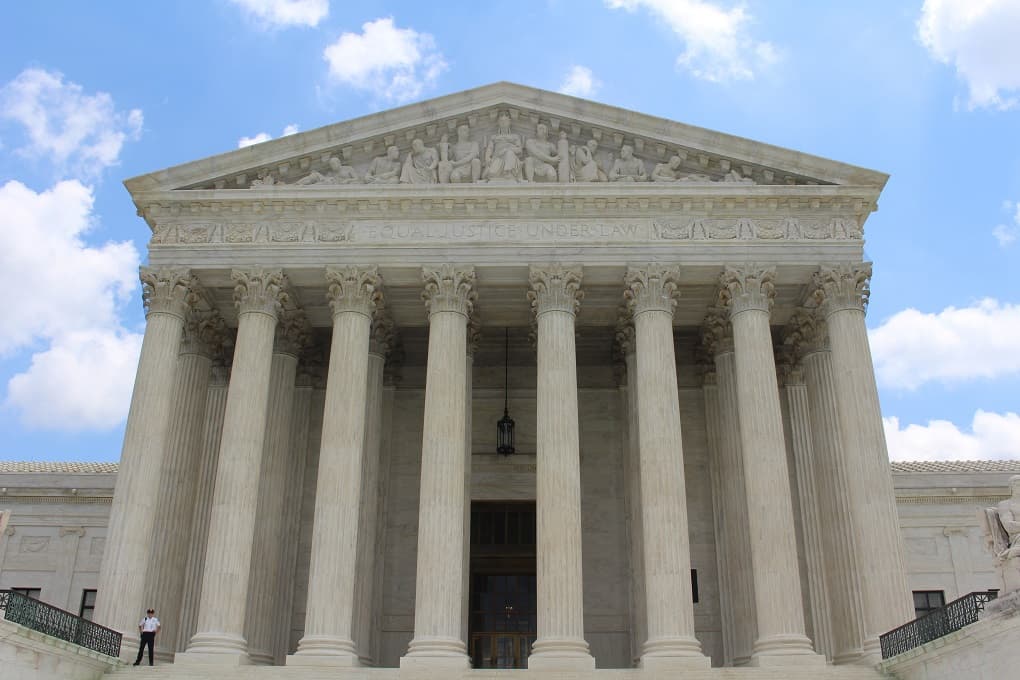Roe v. Wade reversal sends ripples through privacy world


Published:
Contributors:
Joe Duball
News Editor
IAPP
The U.S. Supreme Court's recent decision to overturn Roe v. Wade dealt a blow to women's rights with the constitutional right to an abortion nullified and individual state legislatures now ultimately in charge of deciding if, when and for what reason a woman is allowed to have the procedure. The 6-3 ruling from Supreme Court Justices was expected after a draft opinion leaked in May.
The issue cuts largely at the heart of women's civil rights, but the privacy implications of the reversal are being brought to light as well. U.S. Sen. Ron Wyden, D-Ore., said in a statement that the decision stokes people's fears that the government is "clearly eager to violate their privacy and the basic human right to control their own bodies." Besides urging U.S. Congress to work quickly to codify Roe v. Wade, Wyden said an immediate and necessary response to the decision would be to pass federal privacy legislation.
"Congress must pass legislation protecting people’s data so their web searches, text messages and location tracking aren’t weaponized against them," Wyden said. "Technology companies must take immediate steps to limit the collection and retention of customer data so that they don’t become tools of persecution."
Rep. Suzan DelBene, D-Wash., offered a similar urging on the need for federal privacy legislation to help reinforce women's rights following the SCOTUS's leaked opinion. The bipartisan, bicameral proposal for the American Data Privacy and Protection Act currently under consideration in the U.S. House doesn't have specific provisions related to abortion or women's health and it's unclear at this point whether federal lawmakers may try to amend the bill to tackle the issues at hand.
Existing proposals, actions to curb harms
A main concern among lawmakers and civil rights advocates is the exploitation of personal data that could lead to prosecution of women or physicians who proceed with abortions in violation of state laws. Some state statutes allow and encourage reporting patients and providers to authorities, making simple requests for data from a company or third-party data broker a resource for outing violators.
There's at least one proposal at the federal level seeking to box out access to reportable data as Senate Democrats introduced the Health and Location Data Protection Act June 15. The proposal targets sensitive data brokerage and to combat the sharing of health records and tracking of movements to draw points of inference.
With the bill's introduction, Sen. Patty Murray, D-Wash., said the sale of sensitive data "isn’t just wrong — it’s dangerous" and it "risks Americans’ safety as they seek the care they need." Wyden outlined potential types of data that could be exposed via data brokers after a Roe v. Wade reversal, including "researching reproductive health care online, updating a period-tracking app, or bringing a phone to the doctor’s office."
In the absence of legislation, some women's health application providers have begun shoring up their privacy and data protection practices. The Wall Street Journal reported on how several developers of period-tracking and fertility apps are addressing the issue, including moves by birth-control app Natural Cycles and period-tracking app Flo to incorporate anonymization for users.
"The goal is to make it so no one—not even us at Natural Cycles—can identify the user," Natural Cycles co-founder and co-CEO Raoul Scherwitzl said.
Natural Cycles, Flo and period-tracking app Clue also offer clear paths to data deletion upon request. According to Mashable, period-tracking app Stardust has begun offering end-to-end encryption to protect its users.
"What (encryption) means is that if we get subpoenaed by the government, we will not be able to hand over any of your period tracking data," Stardust's founder Rachel Moranis said in a statement via TikTok. "It is completely anonymized from your login data. We can't view it. You are the only person that can see this."
The concerns don't end with health apps though. Time reported on increased worry around data collection, storage and sharing at pregnancy centers, which have equal ties to anti-abortion advocacy groups as they do women's rights groups. Potential data being collected at these centers include sexual and reproductive histories, test results, ultrasound photos, and information shared during consultations.
"It's just nuts," State Rep. Mary Jo Daley, D-Pa., told Time. Daley introduced a bill targeting issues at pregnancy centers. "They're collecting all this information, and you don't know how they're gonna use it because they're not health care providers. And women don't know that. It's frightening."
Photo by Claire Anderson on Unsplash

This content is eligible for Continuing Professional Education credits. Please self-submit according to CPE policy guidelines.
Submit for CPEs


